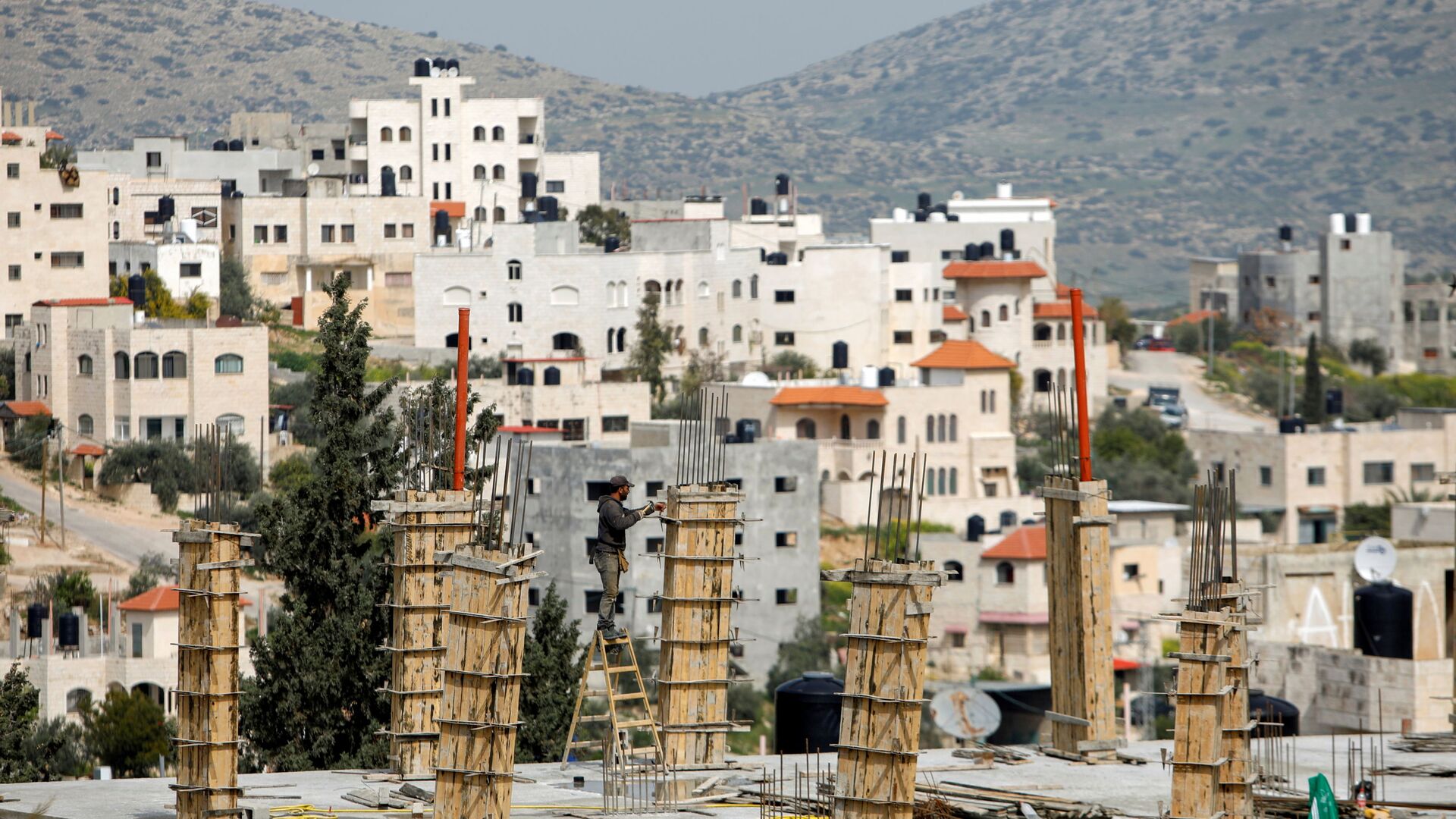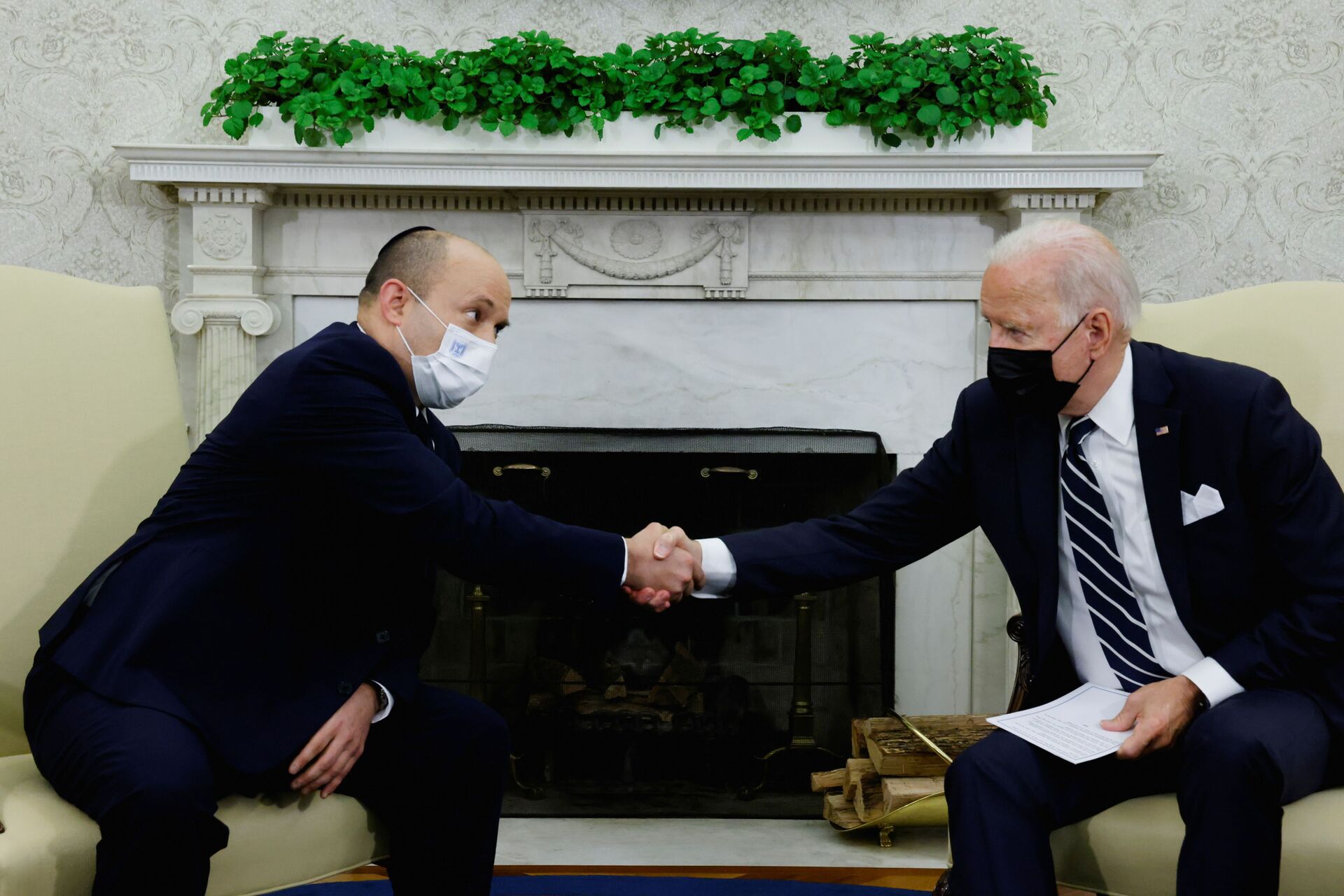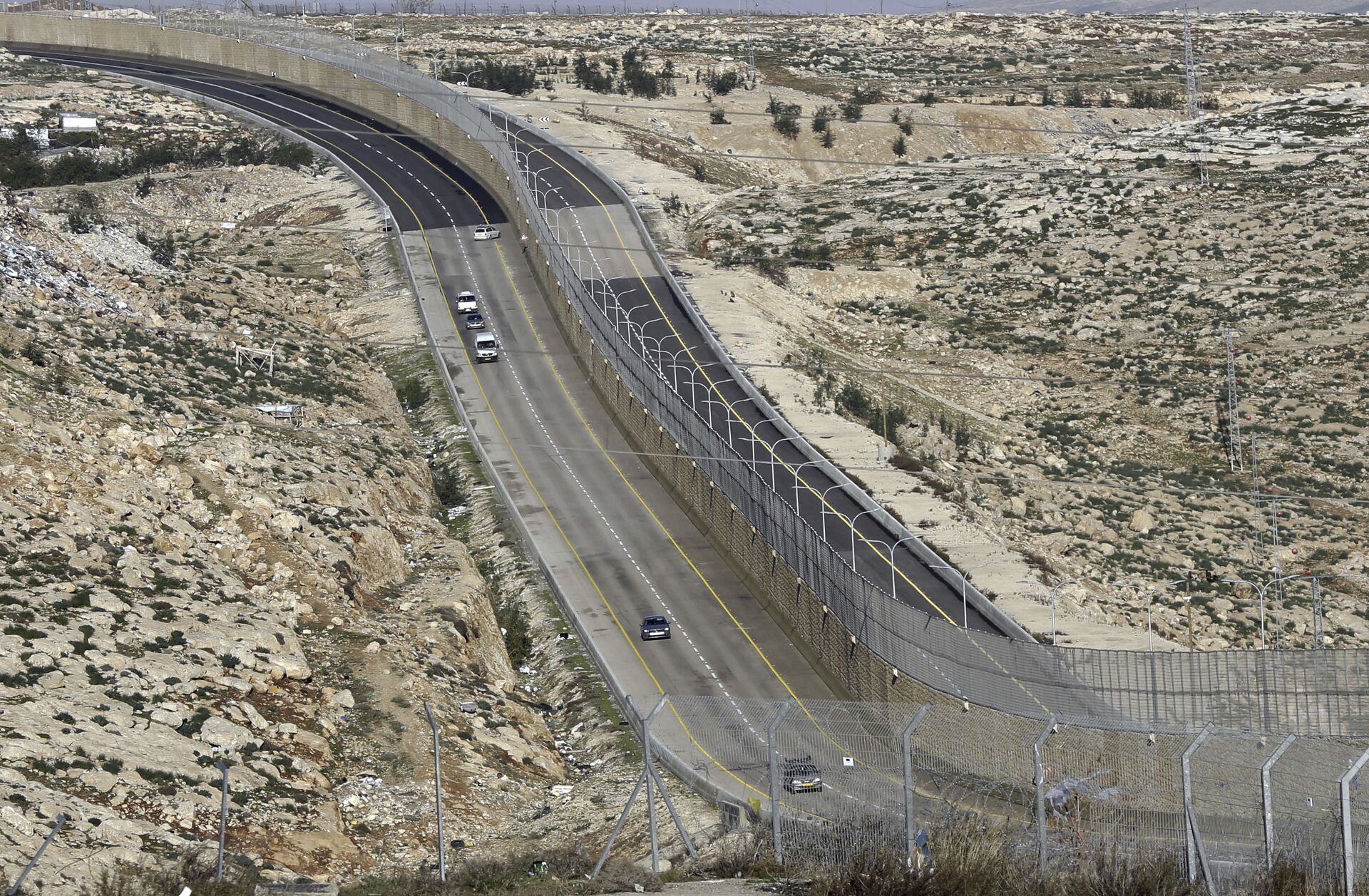‘We Strongly Oppose’ Israel’s Approval of Massive New West Bank Settlement Plan, US Says
20:54 GMT 27.10.2021 (Updated: 17:24 GMT 15.01.2023)

© REUTERS / RANEEN SAWAFTA
Subscribe
Washington has issued a strong rebuke of a new Israeli plan to build more than 1,300 new settlement homes in the West Bank for Jewish settlers, with thousands more likely to soon be approved. However, behind the scenes, Israeli leaders are denying any new US pressure exists.
"We are deeply concerned about the Israeli government's plan to advance thousands of settlement units tomorrow, Wednesday, many of them deep in the West Bank," US State Department spokesperson Ned Price told reporters at a Tuesday briefing.
"We strongly oppose the expansion of settlements, which is completely inconsistent with efforts to lower tensions and to ensure calm, and it damages the prospects for a two-state solution," Price said.
Over the weekend, Israeli Construction and Housing Minister Zeev Elkin announced approval of 1,355 new settlement homes in seven existing settlements in the West Bank, including Beit El.
However, they are just the beginning: another 4,400 homes could soon be on the way. The BBC reported Wednesday that the Supreme Planning Council of the Civil Administration had given final approval to 1,800 homes to be built in Jewish settlements and preliminary approval to another 1,300.
The planning commission is also expected to approve 1,300 homes in Palestinian settlements in Area C of the West Bank, or the part of the West Bank under direct military rule - the first substantial construction approval given to Palestinians since 2007.
Roughly 475,000 Jewish settlers live in the West Bank, who enjoy preferential rights compared to the roughly 2.8 million Palestinians who live there.
Israeli Prime Minister Naftali Bennet’s construction plans are still more grand: earlier this month, he announced his intent to quadruple the population of the Golan Heights, which Israel seized from Syria in the 1967 Six-Day War. Israel announced its annexation of the region, which lies east of the River Jordan and the Sea of Galilee, in 1981, which the United Nations denounced as illegal, but which the Trump administration recognized in 2019.
Elkin also said on Israel’s Army Radio that he plans to double the size of the Jordan River Valley’s population. The fertile area lies almost exclusively within Area C, which Bennett’s predecessor, Benjamin Netanyahu, attempted to annex as well, before Trump intervened with the Abraham Accords peace deal with several Arab states.
Biden’s Lethargic Opposition
While Biden’s predecessor, Donald Trump, was very strongly supportive of Israel’s construction plans in East Jerusalem, the West Bank, and Golan Heights, Biden has taken a stronger stance, although according to some in Bennett’s government, it hasn’t been nearly as strong as it’s presented.

U.S. President Joe Biden and Israel's Prime Minister Naftali Bennett shake hands during a meeting in the Oval Office at the White House in Washington, U.S. August 27, 2021.
© REUTERS / JONATHAN ERNST
Following reports last week that Bennett was “surprised” by the level of pressure the US was putting on his administration over the settlements, Elkin said on Army Radio that there was “no connection between the report and what happened in reality.”
“We know how to behave,” he added. “It’s not anything we haven’t seen in previous governments.”
Another similar incident happened in July amid rumors of a “construction freeze” in the aftermath of another batch of construction project approvals. Price claimed at the time that Washington’s opposition to settlement construction had been “conveyed in public, as I have just now, but also in private.”
“There is no freeze,” David Elhayani, a member of New Hope, told the Jerusalem Post in response, adding that “if there is a freeze this government would not survive” and rejecting the notion that such pressure had been applied by Biden.
Construction in the West Bank, which Zionists call by the ancient kingdoms of Judea and Samaria, is strongly opposed by two parties in his coalition - Meretz, or the Greens, and Ra’am, the Joint Arab List - and a third member, Labor, opposes construction outside the settlement blocs. However, the fact that such construction plans have been able to go ahead without much dissent suggests that early suspicions Bennett’s coalition, which was initially united almost exclusively by opposition to Netanyahu, might not be as fragile as believed.
Israeli anti-settlement NGO Peace Now denounced the construction approvals on Sunday as a continuation of “Netanyahu's policy of de facto annexation” and called on Labor and Meretz to "wake up and demand the wild building in settlements cease immediately."
Report Reveals Massive Settlement Investments
A report published last month exposed hundreds of European companies that have collectively hidden hundreds of billions of dollars of investment in companies actively involved in Jewish settlements in the West Bank.
Published by the Don’t Buy Into Occupation (DBIO) coalition, the report found that 672 European financial institutions had relationships with 50 businesses that participate in Israel’s settlement economy and that just between 2018 and May of 2021, they had provided $114 billion in loans and invested another $141 billion into those businesses.

A newly opened segregated West Bank highway, right side of the wall, is seen near Jerusalem Thursday, Jen. 10, 2019.
© AP Photo / Mahmoud Illean
The offenders are some of Europe’s biggest banks, including Deutsche Bank, Santander, Barclays, and BNP Paribas, as well as firms like Booking.com and HeidelbergCement.
The coalition reached out to the businesses on the list to alert them about the connection and Palestinian calls to boycott and divest from companies that do business in what the United Nations calls the “Occupied Territories” of the West Bank, East Jerusalem, Gaza Strip, and Golan Heights. The campaign, called BDS, where the S stands for “sanctioning Israel,” is intended to pressure the government to end what activists call apartheid practices, including settlement in those areas.
“Some of them claim they did their human rights due diligence, but still decided to be involved in a settlement enterprise, which is quite against any of the suggestions or analysis of human rights experts,” Dr. Anna Khdair, a legal researcher at Al-Haq, a Palestinian human rights organization, and one of the report’s co-drafters, told MintPress News.
However, she said that many simply did not care about objections to their investments because the settlements are legal under Israeli law.
“So, we still have a lot of work to do to explain how the settlement enterprise actually works and how much it is connected to the Israeli economy, [while] Israel itself will not provide enough information or transparency about those links with the illegal settlement enterprise,” Khdair added.
Last year, the UN Human Rights Council published a similar list of 112 businesses with ties to illegal Israeli settlements, most of which are domiciled in Israel.
